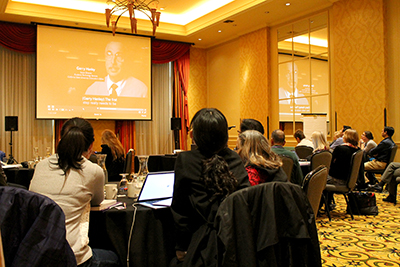Resources

The DO-IT website contains
- information about DO-IT projects
- evidence-based practices that support project goals and objectives
- resources for students with disabilities
- educational materials for teachers and administration
DO-IT and AccessCyberlearning maintain a searchable database of frequently asked questions, case studies, and promising practices related to how educators and employers can fully include students with disabilities. The Knowledge Base is an excellent resource for ideas that can be implemented in programs in order to better serve students with disabilities. In particular, the promising practices articles serve to spread the word about practices that show evidence of improving the participation of people with disabilities in postsecondary education.
Examples of Knowledge Base questions include the following:
- Are electronic whiteboards accessible to people with disabilities?
- Are peer review tools accessible?
- Are there computer keyboards designed to be used with only one hand?
- Are touch screens accessible?
- Do postsecondary institutions have to provide assistive technology (for example, screen enlargement or voice recognition software) to students with disabilities who enroll in distance learning courses?
- Does a postsecondary institution have to provide specific hardware or software (known as assistive technology) that an individual with a disability requests so that they can access information technology used on campus?
- Are funds available specifically for captioning?
- Are there any web-based tutorials on web accessibility?
Individuals and organizations are encouraged to propose questions and answers, case studies, and promising practices for the Knowledge Base. Contributions and suggestions can be sent to doit@uw.edu.
To learn more about accessible online learning, universal design, and information on making your technology accessible review the following websites and brochures.
- 20 Tips for Teaching an Accessible Online Course
- A brochure that describes how to make your Cyberlearning project more accessible and welcoming to people with disabilities
- Guidelines and resources for creating video and multimedia products that are accessible to people with sensory impairments
- More information on universal design in education can be found at the Center for Universal Design in Education
- A brochure on universally designing distance learning programs
- A brochure on what accessible distance learning is and how it helps students
- A brochure on why accessible web design matters, and some resources to make your website accessible
- A list of thirty different web accessibility tips, and how to implement those tips
- The University of Washington’s hub for information on accessible technology, featuring how to create and develop accessible documents, videos, and websites
- The Access Technology Center’s website
- Accessible University’s website featuring common web accessibility principles and solutions